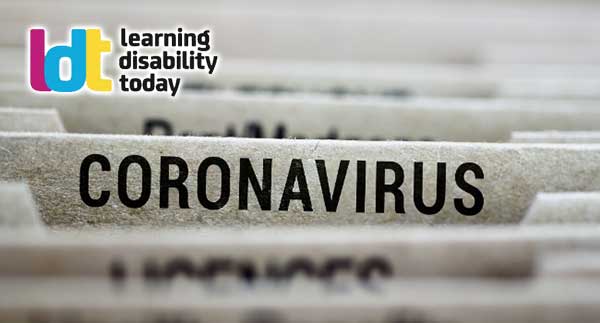Welcome to another week, which we are expecting to be as productive as ever here at Axia ASD.
Just to remind everyone, we are still offering referrals, either conducted face to face following all social distancing guidelines or via the internet over Skype. We look forward to meeting you all.We thought you might also find the following information of use.
Consultant Clinical Psychologist
& Director of Axia ASD Ltd.
A round-up of changes that will impact learning disability and/or autism support during the Coronavirus pandemic
The Coronavirus pandemic has brought a myriad of changes that impact people with learning disabilities and/or autism. From restrictions about exercising outside to changes in social care, here’s a round up of some of the changes..
Government amends exercise guidance
Initial government guidance on exercise said that people must stay within their local area and exercise for no more than an hour each day.
Many people with learning disabilities and/or autism significantly benefit from being outside for longer than an hour a day, and may need to travel beyond their local area to access quiet, safe, secure spaces that meet their needs. They may also need the support of a carer outside of their household.
The government updated this guidance, clarifying that “if you (or a person in your care) have a specific health condition that requires you to leave the home to maintain your health – including if that involves travel beyond your local area – then you can do so.
“This could, for example, include where individuals with learning disabilities or autism require specific exercise in an open space two or three times each day – ideally in line with a care plan agreed with a medical professional”.
Care Act Easements to impact Local Authorities’ duties
Paid and unpaid carer sickness, stringent self-isolation measures, and increased personal caring commitments make for a depleting social care workforce.
Whilst Local Authorities must do all they can to continue providing pre-existing care commitments, the Care Act easements allows them to prioritise the care of those with the most urgent and acute needs.
The powers in the Act enable them to prioritise more effectively where necessary than would be possible under the Care Act 2014 prior to its amendment. However, this amendment must be ‘switched on’ by Local Authorities and there has yet to be a list of Local Authorities who have done so. These measures are time-limited and are there to be used as narrowly as possible, only when deemed essential or as a last resort.
Relaxing the Care Act could mean a reduction of support for some people. For others who are not judged as being in urgent need of care, their support from the Local Authority may be stopped altogether.
Despite this, the Government insists that those who need care will still get it: “We will work in partnership with user and carer groups to understand the impact of COVID-19 and interventions such as Care Act easements to ensure they are not disproportionally disadvantaging those who are least able to advocate forthemselves, and will closely monitor mortality and morbidity in vulnerable groups and the impact on carers”.
Ethical framework for adult social care launched
Care Act Easements must comply to an adult social care ethical framework, a values-based resource to aid decision-making for Local Authorities.
The values that underpin the framework are:
Respect – Those making decisions should provide people with the opportunity to express their views on matters that affect their care, support, and treatment. Decision-makers must consider – and communicate – the implications of any decisions whilst respecting people’s personal choices. In this way, every step must be made to keep people as informed as possible of what is happening or what is expected to happen in any given circumstance.
Where a Mental Capacity Assessment deems a person to be lacking capacity, their best interests and support needs must be considered. Subject to available resources, people must be given the support that they are entitled to with clear justifications for prioritisation decisions.
Reasonableness – Any decisions which are made must be practical and have a reasonable chance of working. Such decisions should be based on available evidence as well as an awareness of known risks and benefits.
Alternative options must be considered, with the needs of difference cultures and communities taken into consideration. The decision-making process should be clear and fair, making sure all contributions are considered seriously.
Minimising harm – Local Authorities must acknowledge and communicate in ways that are accessible that everyone has a role to play in minimising spread as well as providing regular updates about the situation. Lessons learned from local, national, and global experiences about the best way to treat and respond to the outbreak as an understanding of COVID-19 develops must be utilised. This information will enable care workers and volunteers to make informed decisions which support people at greater risk.
Inclusiveness – Shared decision-making must be enacted, involving families and carers in aspects of planning that affect them and the individual who they care for. If a person has capacity under the Mental Capacity Act, the “nothing about me without me” principle applies. Communication has to be suited to the needs of the individual, making the process as clear as possible to people irrespective of their preferred communication style.
Legislative frameworks such as the Equality Act (2010) must be adhered to and any disproportionate impacts on particular groups or people need to be considered.
Accountability – In this context, ‘accountability’ refers to acting on and delivering the outcomes required by their responsibilities and duties to individuals, their families, and carers. Official guidance, statutory duties, and professional regulations must be adhered to, with transparency about the necessity of particular decisions and how they are made as reflected in records.
Organisations still have an obligation to carry out professional roles and responsibilities unless it is deemed reasonable not to do so as well as providing a safe environment for staff where their health and wellbeing needs are attended to. In situations whereby staff are asked to work outside of their normal area of expertise, support and guidance must be offered. Locally-agreed processes should be in place to handle ethical challenges both during and after the pandemic.
Flexibility – Those making decisions must respond and adapt to changes as they happen and make sure that there is scope for people to challenge decisions. A collaborative approach, one that re-examines policies and agreements in the context of the pandemic, must be taken.
Proportionality – Statutory duties and responsibilities must be acted on, with decision-makers noting any duties that might be amended as the outbreak develops. Adequate support must be provided to those who have extra or new responsibilities to care for others as well as those who are asked to take increased risks or face increased burdens.
Community – Everyone should be conscious of their own decisions and how they may impact on others, sharing ways they have learned from their own experiences.
The document is an adapted version of the ethical framework first developed by the Committee on Ethical Aspects of Pandemic Influenza in 2007, which was later revised by the Department of Health and Social Care in 2017.
CQC to test social care staff for COVID-19
On behalf of the Department of Health and Social Care, health and social care regulator CQC (Care Quality Commission) is working with Public Health England to book appointments for social care staff self-isolating with symptoms of COVID-19 to be tested.
Those who test negative can return to work, helping to relieve the inevitable pressures that services are facing. Staff like GPs and practice teams will have access to testing appointments via CQC, too. This is not to replace existing local systems but will make sure that everyone can access testing swiftly.
CQC will contact individual practices from this week with details of how to book testing for their staff and more information on eligibility.
Children with EHC Plans may still be able to attend school/college
Whilst schools across the country have been closed by the government, there are cases in which children are still able to attend.
For children with an Education, Health and Care (EHC) Plan, a risk assessment should be undertaken by their school or college to decide whether their needs can only continue to be met in an educational setting. Even if the risk assessment concludes that the child is still allowed to attend school or college, parents and carers do not have to send them if they believe it is in the child’s best interest to be educated from home.
The Coronavirus Act means that Local Authorities have to do what they can to ensure a child’s EHC Plan is enacted but is no longer obliged to. If any changes are made to their EHC Plan during this period they will be temporary, and the Act that enables these changes to be made will be reviewed in September 2020.
- See more: Government’s “unclear” coronavirus guidance puts social care in jeopardy
- See more: ‘To feel heard is to feel safe’
Furloughed workers can join the care sector
The government aims to attract 20,000 people into social car to undertake paid employment in the social care sector; a new online platform for streamlining recruitment and training is being created with CQC.
Social care jobs require employees to have DBS checks. The Home Office and the Disclosure and Barring Service have put temporary arrangements in place to provide a faster process than usual, free of cost.
Whist there is no mandatory standardised training that social care staff are required to undertake, Skills for Care has partnered with the government to give companies and their employees across to free training resources and workbooks.
Share This Post:









Leave a Reply